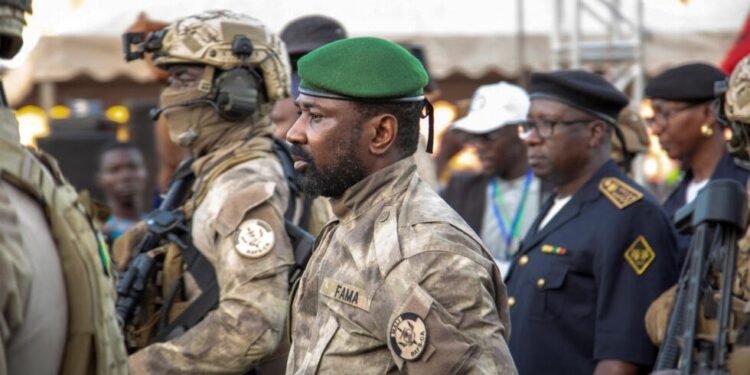By Ebi Kesiena
Malian authorities have suspended the broadcast signal of popular news station Joliba TV News following a televised debate in which a politician criticized the military rulers of neighboring Burkina Faso, according to a journalist from the channel.
Attaher Halidou, who moderated the debate, confirmed the signal disruption on Wednesday stating, “This morning, the authorities cut off our TV channel signal, but we’re still hopeful that they’ll restore it soon.”
The signal suspension follows the recent arrest of politician Issa Kaou N’Djim, who alleged during the debate that Burkina Faso’s military leaders had fabricated claims of a foiled coup in September. N’Djim, a former vice president of Mali’s National Transitional Council, has distanced himself from the ruling junta and called for a return to electoral democracy.
The broadcaster’s director was also interrogated by authorities, further escalating concerns over press freedom.
Joliba TV’s suspension is the latest in a series of moves by Mali’s military regime to suppress dissent. Since seizing power in 2020, the junta has arrested opposition figures, banned media coverage of political parties, and restricted public discourse.
In June, 11 opposition politicians and several activists were detained. Analysts view these actions as a sign of shrinking space for political pluralism and free expression in the West African nation.
The Press House of Mali, an organization representing journalists, has condemned the signal disruption and warned of further actions.
“We are in talks with the Malian authorities to find a global solution that not only concerns the restoration of Joliba TV’s signal but also addresses the threat of license withdrawal and other press freedom concerns,” said Bandiougou Danté, the group’s president.
The Press House has also threatened to rebroadcast the contentious debate if Joliba TV’s license is revoked, signaling rising tensions between the media and the government.
Meanwhile, Mali’s political landscape has been dominated by military regimes following a series of coups, fueled by dissatisfaction with previous civilian governments’ handling of security challenges. Alongside Burkina Faso and Niger, Mali is a member of the Alliance of Sahel States (AES), a mutual defense pact established in 2023.
However, the region faces escalating violence, with record numbers of militant attacks and accusations of civilian killings by government forces.




































